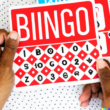Bingo is legal in Texas as of November 1, 2017. The law allows the state to authorize and regulate certain types of gambling, including bingo.
The Texas Lottery Commission is responsible for regulating and monitoring bingo activities in the state.
This article provides a overview of the law governing bingo in Texas. First, it discusses the definition of bingo in the state.
Next, it explains how bingo is regulated in Texas. Finally, it provides a conclusion on whether or not Bingo is legal in Texas.
Bingo is defined under Texas law as a game of chance played with paper or electronic cards with numbers and letters on them. The player either purchases a card or drAWS one during the game.
Bingo games typically have five cards drawn, with each card having numbers and letters printed on it. The player tries to match all of the numbers and letters on one or more cards to win a prize.
The law governing bingo in Texas is found in Section 51.003 of the Texas Penal Code.
This section states that bingo is a game of chance that is authorized by the state and is subject to regulation by the Texas Lottery Commission (TLC). In order to operate a bingo game legally in Texas, an operator must obtain a license from the TLC.
The TLC is responsible for regulating and monitoring bingo activities in the state. Under Section 51.
003, the TLC may authorize up to four types of gambling: horse racing, dog racing, lotteries, and bingo. The TLC must approve any new type of gambling that wishes to be authorized in Texas.
The TLC requires all operators of bingo games to comply with several requirements set forth in Section 51.004 of the Penal Code.
These requirements include: having proper signage indicating that a bingo game is taking place, maintaining records documenting player participation and prize awards, providing players with information about their chances of winning, and having employees who are qualified to conduct the game safely and equitably.
In order for an operator to operate a bingo game legally in Texas, they must first obtain a license from the TLC. The TLC will then determine whether or not authorize the operator to conduct bingo games under its jurisdiction.
If an operator wishes to conduct games that are not covered by Section 51.003 (such as keno or black jack), they must seek authorization from the legislature instead of from the TLC.







